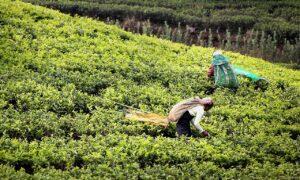Lipton’s Kenyan tea estate sale challenged by indigenous group
The sale of Lipton Teas and Infusions’ tea estates in Kenya has been challenged by the local indigenous community.

Sri Lanka-based investment firm Browns Investments snapped up Lipton’s tea estates in the Kenyan counties of Kericho and Bomet in a deal announced in May.
However, the Kipsigis Community Clans Organization has said the sale was transacted without the “free, prior and informed consent (FPIC) of the local community”.
The group, which represents 1.5 million Kipsigis people, said the tea estate is on “disputed land seized by force from the local community”, adding that there is an “ongoing conflict” between the local community and the estate owners over the land.
The organisation said: “We have engaged legal counsel and will seek to protect our rights with the relevant authorities following the UN Guiding Principles for Business & Human Rights, the UN Declaration on the Rights of Indigenous Peoples and other applicable laws/principles.
When the acquisition was announced, all tea sold by Browns – which, after the deal, is set to export around 87,000 tonnes a year – will be “grown and harvested to a new set of standards covering quality, social and environmental protections”. Further details were not disclosed.
A tranche of shares equating to around 15% of the main Kenyan operating company was said to be offered to communities in Kericho and Bomet, where the estates are located. The Kipsigis organisation, however, said that “the local community’s offer to acquire the tea estate was not fairly considered, was not given equal access to the sale process and was not transparently engaged with throughout”.
Lipton Teas and Infusions is the former Unilever tea and herbal drinks business, known as Ekaterra when private-equity firm CVC Capital Partners acquired the assets from the FMCG group three years ago.
Just Drinks
Related news
Unilever and Google Cloud Partner to Pioneer Next Generation of Consumer Goods Technologies
🎧 Hallgasd a cikket: Lejátszás Szünet Folytatás Leállítás Nyelv: Auto…
Read more >Short wash cycle, long-lasting effect
🎧 Hallgasd a cikket: Lejátszás Szünet Folytatás Leállítás Nyelv: Auto…
Read more >Related news
Lidl guarantees fairer prices for cocoa farmers
🎧 Hallgasd a cikket: Lejátszás Szünet Folytatás Leállítás Nyelv: Auto…
Read more >40 secure jobs, sustainable solutions – new BURGER KING® in Csepel
🎧 Hallgasd a cikket: Lejátszás Szünet Folytatás Leállítás Nyelv: Auto…
Read more >








